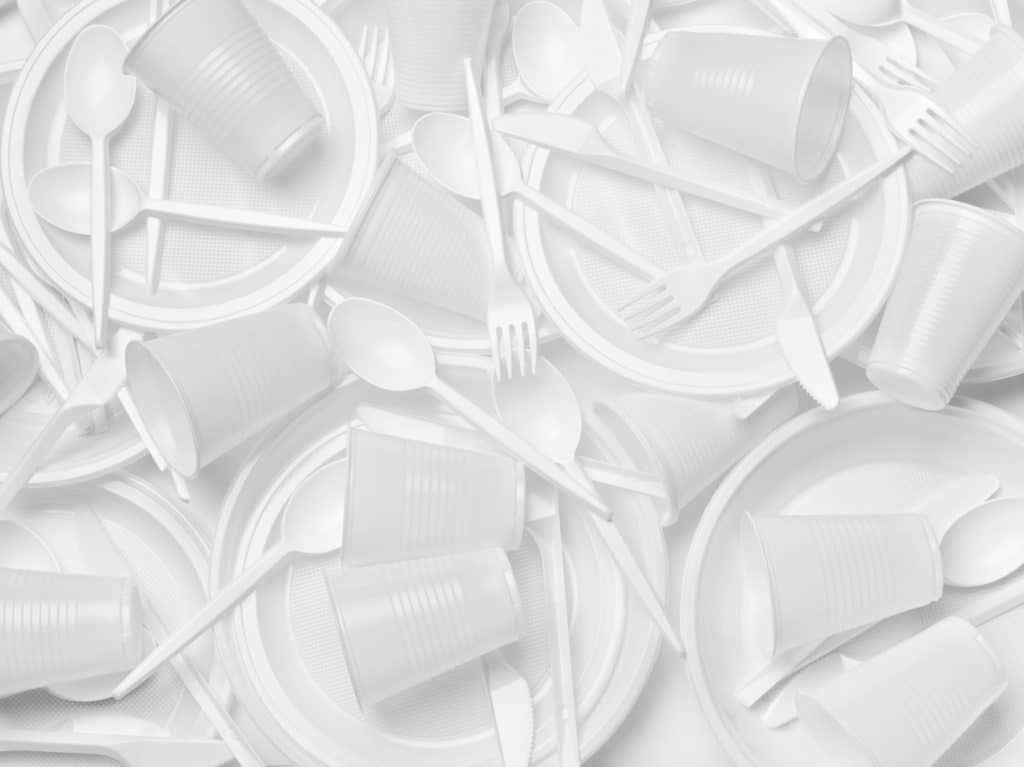Січ 19, 2023
Single Use Plastic Plates and Cutlery To Be Banned In England

Single Use Plastics
Single use plastic plates, cutlery and other items are set to be banned in England from October 2023; this action is part of England’s 25 Year Environment Plan (2018), which aims to eliminate all avoidable plastic waste by 2042. According to the Department for Environment, Food and Rural Affairs (Defra), the ban will include other single use plastics, such as trays, bowls, balloon sticks, food containers and certain kinds of polystyrene cups.
This is an extension of the 2020 ban on various single use plastics, such as plastic straws, plastic stirrers and plastic-stemmed cotton buds. However, this new ban will apply only to plastic food packaging in cafes and restaurants, not supermarkets or other stores. These will be addressed in a separate government scheme, due to be implemented in 2024.
Environmental groups in the UK have been campaigning for single use plastic bans like this for decades. However, groups such as Greenpeace, 38 Degrees and City to Sea, with their ‘Cut the Cutlery’ campaign, continue to pressure the UK government to go even further. Despite the new ban in England, the Scottish ban which came in last year and the Welsh ban approved in December, these groups call on the government to do even more and meet the single use plastic restrictions set out in the EU single-use plastic directive.
EU Single-Use Plastic Directive
The EU Single-Use Plastic Directive (2021) banned a wide variety of single use plastic products, for which suitable alternatives were readily available and affordable, to reduce the impact on the environment of avoidable plastic waste. The items in the ban included cotton buds, cutlery, plates, straws, balloon sticks, stirrers and expandable polystyrene food and beverage containers.
Under the EU Single-Use Plastic Directive, it is illegal to make these items available anywhere on the EU market. Pre-Brexit, the UK government had agreed to meet the EU restrictions, but have since moved the goal posts and set lesser targets. Environmental groups continue to campaign for the UK to reaffirm their commitment to meeting the targets of the EU Single-Use Plastic Directive and to be more ambitious in tackling the problem of single use plastics.
Plastic Ban
Even though they do not believe it is enough on its own, environmental activists are still supportive of the plastic ban as an important step in tackling the plastic pollution crisis. In England, 18 single use plastic plates and 37 items of single use plastic cutlery are used per person every year. That brings the yearly total in England up to 1.1 billion single use plates and 4.3 billion pieces of single use cutlery per person.
This is not only ‘completely unnecessary’, according to City to Sea policy manager Steve Hyndside, but is incredibly harmful for the environment. Defra statistics show that only 10% of this waste is recycled, which means 90% of it – over 4.8 billion single use plastic items – become litter or are sent to landfill or incineration. This new plastic ban has the power to prevent the environmental damage of the billions of items of plastic waste becoming pollution every year.
WasteTrade
WasteTrade of course supports this single use plastic ban, as we support any policy intended to tackle plastic pollution. Reducing the amount of plastic that goes to waste is why WasteTrade was established; we connect the producers and reprocessors of plastic scrap in the safest, most efficient and most profitable way possible to keep these valuable resources in use within the economy.
We also agree that the UK government should do more to tackle plastic pollution across all four nations. WasteTrade makes it easier than ever for businesses to recycle their waste, but to properly transition towards a circular economy the changes must be made from the top down. The government must legislate to set the standards for sustainability for the economy to adapt to.





